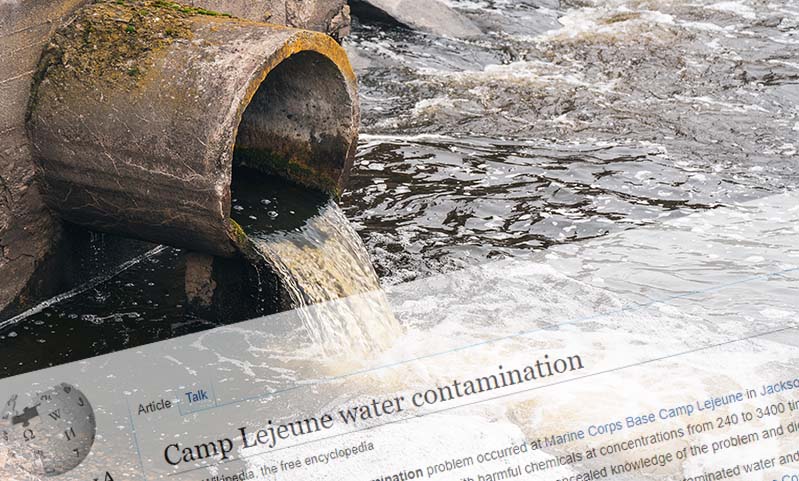When The Past Can Still Harm You: The Link Between Talcum Powder & Ovarian Cancer
When news outlets first reported the connection between talcum powder and various cancers, many people shrugged and thought, “I haven’t used talcum powder in years.”
But talcum’s ingredients can contain trace elements of the cancer-causing mineral asbestos, since the two are often mined close to each other. This means that even the use of contaminated talcum that took place decades ago can become a life-threatening health issue, in the form of both mesothelioma and ovarian cancer.
A Hidden Danger
When you mention “talcum powder” most people think of that familiar white bottle on an infant’s changing table, typically sold by Johnson & Johnson. A sprinkle of talcum after baby’s bath time became a nightly ritual, as well as regular use after a diaper change.
Talcum powder is also surprisingly common in products used by adults. It is a key ingredient in many health and cosmetic products that are applied daily by men and women of all ages, such as deodorant and makeup.
For decades, women were often instructed to use talcum powder as part of their feminine hygiene routine. They used it on their hands, under their arms, under their bra and in their genital region.
Advertising by Johnson & Johnson, among other companies, contained messages encouraging women to use talcum powder to soak up moisture and stay “fresh and clean.”
A Legal Wake-up Call
The experienced attorneys at Serling & Abramson, P.C. are specialists in litigating cases involving contaminated talcum powder and its connection to mesothelioma and ovarian cancer, and will review your situation free of charge.
It has been documented in medical literature since 1955 that asbestos, a known contaminant of talc, causes mesothelioma. Thousands of lawsuits filed against health and beauty companies have made the connection between contaminated talcum powder and cancer even clearer. Johnson & Johnson has been involved in several high-profile cases over the decades, including two in 2016.
Those juries found that Johnson & Johnson was negligent in the research, development, testing, marketing, and sale of their talcum powders, including Shower to Shower and Johnson & Johnson’s Baby Powder.
A similar case in 2018 resulted in an award of $4.69 billion to 22 women who said Johnson & Johnson’s Baby Powder and other talcum-based products contained asbestos traces and contributed to their ovarian cancer and mesothelioma.
It was also found that Johnson & Johnson failed to warn consumers of the increased risk of ovarian cancer — even after a report by Reuters said that Johnson & Johnson had known for decades that its talcum powder was occasionally contaminated with asbestos.
Johnson & Johnson stopped selling their talcum-based baby powder in the U.S. and Canada in 2020 and now offers a version using a cornstarch substitute. However, other companies are still placing talcum powder for sale on store shelves without warning labels — contact Serling & Abramson, P.C. if you think any of these products has contributed to your ovarian cancer or mesothelioma.
Positive Changes, Lingering Concerns
As a result of these lawsuits and rulings that helped victims claim billions of dollars in damages, additional testing has further established a connection between the use of contaminated talcum powder and the development of ovarian cancer and mesothelioma.
Today, many companies claim to produce asbestos-free talc products, even after experts have found their industry tests to be outdated.
The list of everyday products that still contain talcum powder is surprising and long — everything from deodorant and makeup to chewing gum and construction materials, even countertops.
Talcum also is not regulated by the Food and Drug Administration (FDA). Since it is considered a “cosmetic mineral,” it doesn’t undergo the strict testing of other substances that are directly swallowed — even though it can be absorbed by the body or ingested by mistake.
Reasons For Hope
Many infant-related and cosmetic products offer the benefits of talcum powder without the risk of contamination from asbestos. Read the list of ingredients carefully when you shop and choose talcum-free substitutes whenever possible.
But careful shopping now can’t make up for a lifetime of using talcum powder unaware of the health risks. The potential damage can’t be undone, but you may have a compensation case — plus experts who are willing to listen and help.
What you can do: If you or a loved one have developed ovarian cancer after long-term genital talcum powder use, the experienced attorneys at Serling & Abramson, P.C. can review your situation free of charge. We have decades of success confronting corporations when their products have endangered consumers’ safety, even when used decades ago.
While we can’t always count on corporations to do the right thing, we can hold them accountable. Thanks to Serling & Abramson, P.C., there’s always room for hope.




